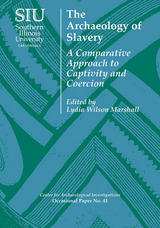
Plantation sites, especially those in the southeastern United States, have long dominated the archaeological study of slavery. These antebellum estates, however, are not representative of the range of geographic locations and time periods in which slavery has occurred. As archaeologists have begun to investigate slavery in more diverse settings, the need for a broader interpretive framework is now clear.
The Archaeology of Slavery: A Comparative Approach to Captivity and Coercion, edited by Lydia Wilson Marshall, develops an interregional and cross-temporal framework for the interpretation of slavery. Contributors consider how to define slavery, identify it in the archaeological record, and study it as a diachronic process from enslavement to emancipation and beyond.
Essays cover the potential material representations of slavery, slave owners’ strategies of coercion and enslaved people’s methods of resisting this coercion, and the legacies of slavery as confronted by formerly enslaved people and their descendants. Among the peoples, sites, and periods examined are a late nineteenth-century Chinese laborer population in Carlin, Nevada; a castle slave habitation at San Domingo and a more elite trading center at nearby Juffure in the Gambia; two eighteenth-century plantations in Dominica; Benin’s Hueda Kingdom in the seventeenth and eighteenth centuries; plantations in Zanzibar; and three fugitive slave sites on Mauritius—an underground lava tunnel, a mountain, and a karst cave.
This essay collection seeks to analyze slavery as a process organized by larger economic and social forces with effects that can be both durable and wide-ranging. It presents a comparative approach that significantly enriches our understanding of slavery.
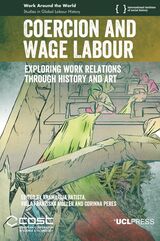
Broad in scope, Coercion and Wage Labour examines diverse areas of work including textile production, war industries, civil service, and domestic labor, in contexts from the Middle Ages to the present day. This book demonstrates that wages have consistently shaped working people’s experiences and failed to protect workers from coercion. Instead, wages emerge as versatile tools to bind, control, and exploit workers. Remuneration mirrors the distribution of power in labor relations, often separating employers physically and emotionally from their employees and disguising coercion.
The book makes historical narratives accessible to interdisciplinary audiences. Most chapters are preceded by illustrations by artists invited to visually conceptualize the book’s key messages and to emphasize the presence of the body and landscape in the realm of work. In turn, the chapter texts reflect back on the artworks, creating an intense intermedial dialogue that offers mutually relational “translations” and narrations of labor coercion. Other contributions written by art scholars discuss how coercion in remunerated labor is constructed and reflected in artistic practice. The collection serves as an innovative and creative tool for teaching and raises awareness that narrating history is always contingent on the medium chosen and its inherent constraints and possibilities.

Novelists have individually distinctive ideas of dialogue, Aaron Fogel argues. In this analysis of Conrad's narrative craft he explores--with broad implications--the theory and uses of dialogue.
Conrad's was a distinctive reading of the English language conditioned by his particular idea of forced speech and forced writing. Fogel shows how Conrad shaped ideas and events and interpreted character and institutions by means of dialogues representing not free exchange but various forms of forcing another to respond. He applied this format not only to the obvious political contexts, such as inquisition or spying, but also to seemingly more private relations, such as marriage, commerce, and storytelling. His idea of dialogue shaded the meanings he gave to words even to characters' names. Conrad is particularly interested in scenes in which a speech-forcer is surprised, repudiated, or punished. Fogel concludes that Conrad increasingly saw the punishment of the speech-forcer as classically related to Oedipus inquiries, in which the provoked answers rebound upon and destroy the forcer. This punishment is--as Shakespeare, Scott, and Wordsworth also dramatically intuited--the classical Oedipal dialogue scene.
Fogel's analysis ranges widely over Conrad's fiction but focuses especially on Nostromo, The Secret Agent, and Under Western Eyes. His readings offer a balanced critique of Mikhail Bakhtin's theories about dialogic. Conrad's novels have many of the features Bakhtin identified as dialogical; but he was preoccupied with coercion in dialogue form. Fogel proposes that to understand this form is to begin to reconsider our political and aesthetic assumptions about what dialogue is or ought to be.
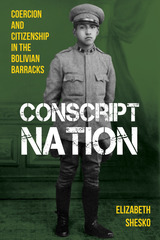

This collection of essays addresses a number of questions regarding the role of consent in marriage and in sexual relations outside of marriage in ancient and medieval societies. Ranging from ancient Greece and Rome to the Byzantine Empire and Western Medieval Europe, the contributors examine rape, seduction, and the role of consent in establishing the punishment of one or both parties; the issue of marital debt and spousal rape; and the central question of what is perceived as coercion and what may be the validity or value of coerced consent. Other concepts, such as honor and shame, are also investigated.
Because of the wide range--in time and place--of societies studied, the reader is able to see many different approaches to the question of consent and coercion as well as a certain evolution, in which Christianity plays an important role.


Many legal theorists maintain that laws are effective because we internalize them, obeying even when not compelled to do so. In a comprehensive reassessment of the role of force in law, Frederick Schauer disagrees, demonstrating that coercion, more than internalized thinking and behaving, distinguishes law from society’s other rules.
Reinvigorating ideas from Jeremy Bentham and John Austin, and drawing on empirical research as well as philosophical analysis, Schauer presents an account of legal compliance based on sanction and compulsion, showing that law’s effectiveness depends fundamentally on its coercive potential. Law, in short, is about telling people what to do and threatening them with bad consequences if they fail to comply. Although people may sometimes obey the law out of deference to legal authority rather than fear of sanctions, Schauer challenges the assumption that legal coercion is marginal in society. Force is more pervasive than the state’s efforts to control a minority of disobedient citizens. When people believe that what they should do differs from what the law commands, compliance is less common than assumed, and the necessity of coercion becomes apparent.
Challenging prevailing modes of jurisprudential inquiry, Schauer makes clear that the question of legal force has sociological, psychological, political, and economic dimensions that transcend purely conceptual concerns. Grappling with the legal system’s dependence on force helps us understand what law is, how it operates, and how it helps organize society.

The United States faces a growing crisis in care. The number of people needing care is growing while the ranks of traditional caregivers have shrunk. The status of care workers is a critical concern.
Evelyn Nakano Glenn offers an innovative interpretation of care labor in the United States by tracing the roots of inequity along two interconnected strands: unpaid caring within the family; and slavery, indenture, and other forms of coerced labor. By bringing both into the same analytic framework, she provides a convincing explanation of the devaluation of care work and the exclusion of both unpaid and paid care workers from critical rights such as minimum wage, retirement benefits, and workers' compensation. Glenn reveals how assumptions about gender, family, home, civilization, and citizenship have shaped the development of care labor and been incorporated into law and social policies. She exposes the underlying systems of control that have resulted in women—especially immigrants and women of color—performing a disproportionate share of caring labor. Finally, she examines strategies for improving the situation of unpaid family caregivers and paid home healthcare workers.
This important and timely book illuminates the source of contradictions between American beliefs about the value and importance of caring in a good society and the exploitation and devalued status of those who actually do the caring.
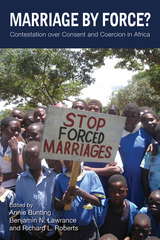
With forced marriage, as with so many human rights issues, the sensationalized hides the mundane, and oversimplified popular discourses miss the range of experiences. In sub-Saharan Africa, the relationship between coercion and consent in marriage is a complex one that has changed over time and place, rendering impossible any single interpretation or explanation.
The legal experts, anthropologists, historians, and development workers contributing to Marriage by Force? focus on the role that marriage plays in the mobilization of labor, the accumulation of wealth, and domination versus dependency. They also address the crucial slippage between marriages and other forms of gendered violence, bondage, slavery, and servile status.
Only by examining variations in practices from a multitude of perspectives can we properly contextualize the problem and its consequences. And while early and forced marriages have been on the human rights agenda for decades, there is today an unprecedented level of international attention to the issue, thus making the coherent, multifaceted approach of Marriage by Force? even more necessary.
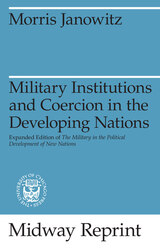
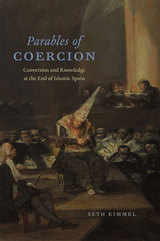
In its careful examination of how Spanish authors transformed the history of scholarship through debate about forced religious conversion, Parables of Coercion makes us rethink what we mean by tolerance and intolerance, and shows that debates about forced conversion and assimilation were also disputes over the methods and practices that demarcated one scholarly discipline from another.

Modern psychological and political theory meet head-on in this powerful re-evaluation of America's contradictory and sometimes dangerous addiction to individualism. Best-selling author Gaylin and co-author Jennings investigate the contentious intersections of interdependence and autonomy, rights and public responsibility. They examine the painful abrasion occurring between America's tradition of personal freedom and privacy, as it rubs against the still valuable if almost vanishing ideals of sacrifice and social order.
Our current culture of autonomy—championed by both liberals on the left and libertarians on the right—is based on the idea of rationality as the motivation for human conduct. But, as the authors remind us, people are not simply rational creatures—appeals to emotions are always far more effective than logical argument in changing our behavior.
This timely edition includes a new preface; updated examples and illustrations throughout; and new coverage of contemporary social critics and their work since the publication of the first edition. Two essential new chapters, one on the movement to forgo life-sustaining treatment and the other on physician-assisted suicide, particularly clarify the authors' arguments. Drawing on these and numerous other illustrations—with significant emphasis on the state of American health care—Gaylin and Jennings demonstrate that society has not just the right but the duty to occasionally invoke fear, shame, and guilt in order to motivate humane behavior.
As cases of AIDS are once again on the upswing, as the dangerously mentally ill are allowed to wander free and untreated, as starvation and poverty still hold too many in its grip in the richest nation on the planet, this controversial book, considerably revised and expanded, is needed more than ever. If we are to indeed preserve and nurture a genuinely free—and liberal—society, the authors suggest that these "coercions" may be essential for the health and the maturity of a nation where we all too often avert our eyes, not seeing that our neighbor is in pain or trouble and needs our help.

READERS
Browse our collection.
PUBLISHERS
See BiblioVault's publisher services.
STUDENT SERVICES
Files for college accessibility offices.
UChicago Accessibility Resources
home | accessibility | search | about | contact us
BiblioVault ® 2001 - 2024
The University of Chicago Press









